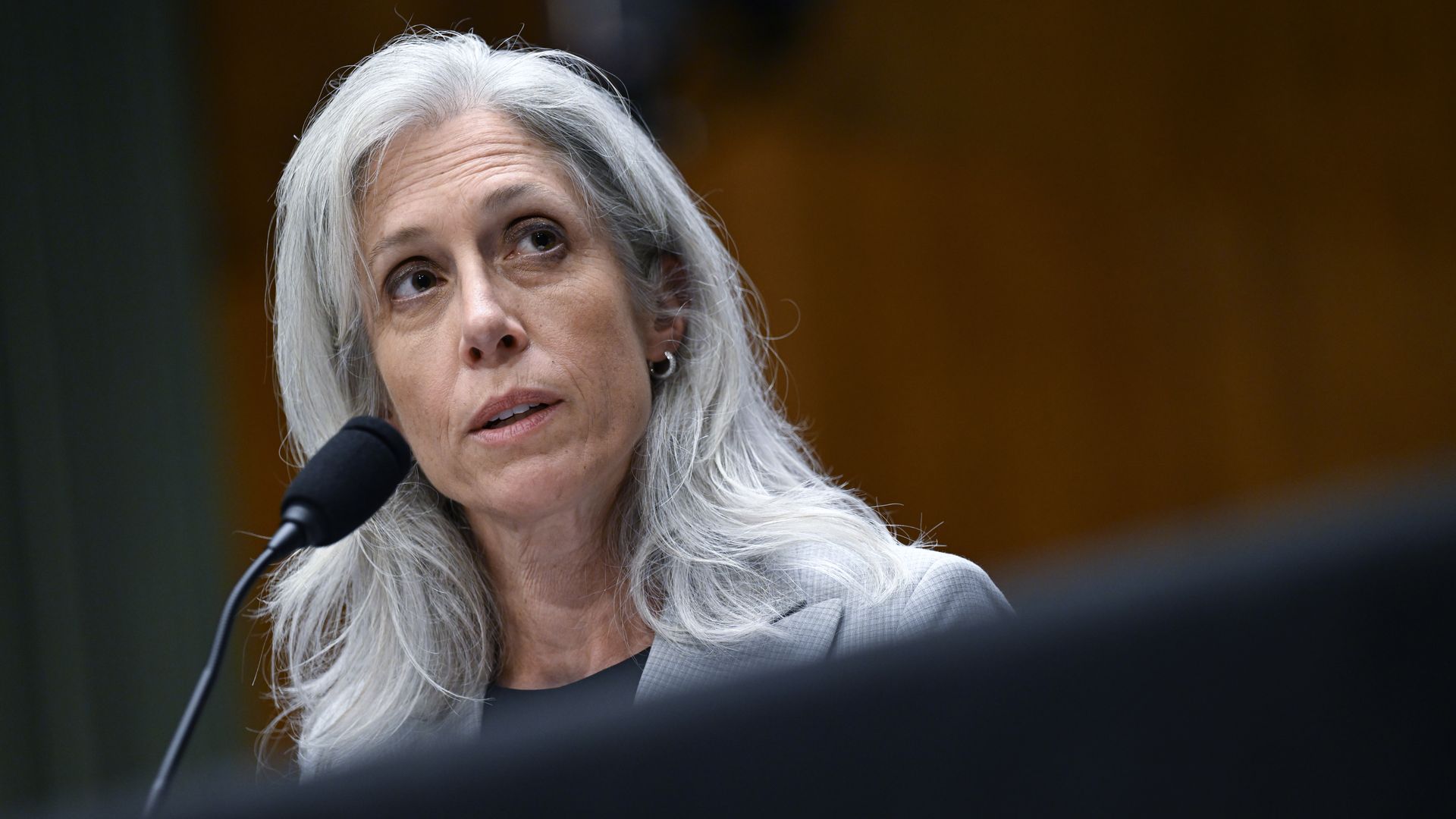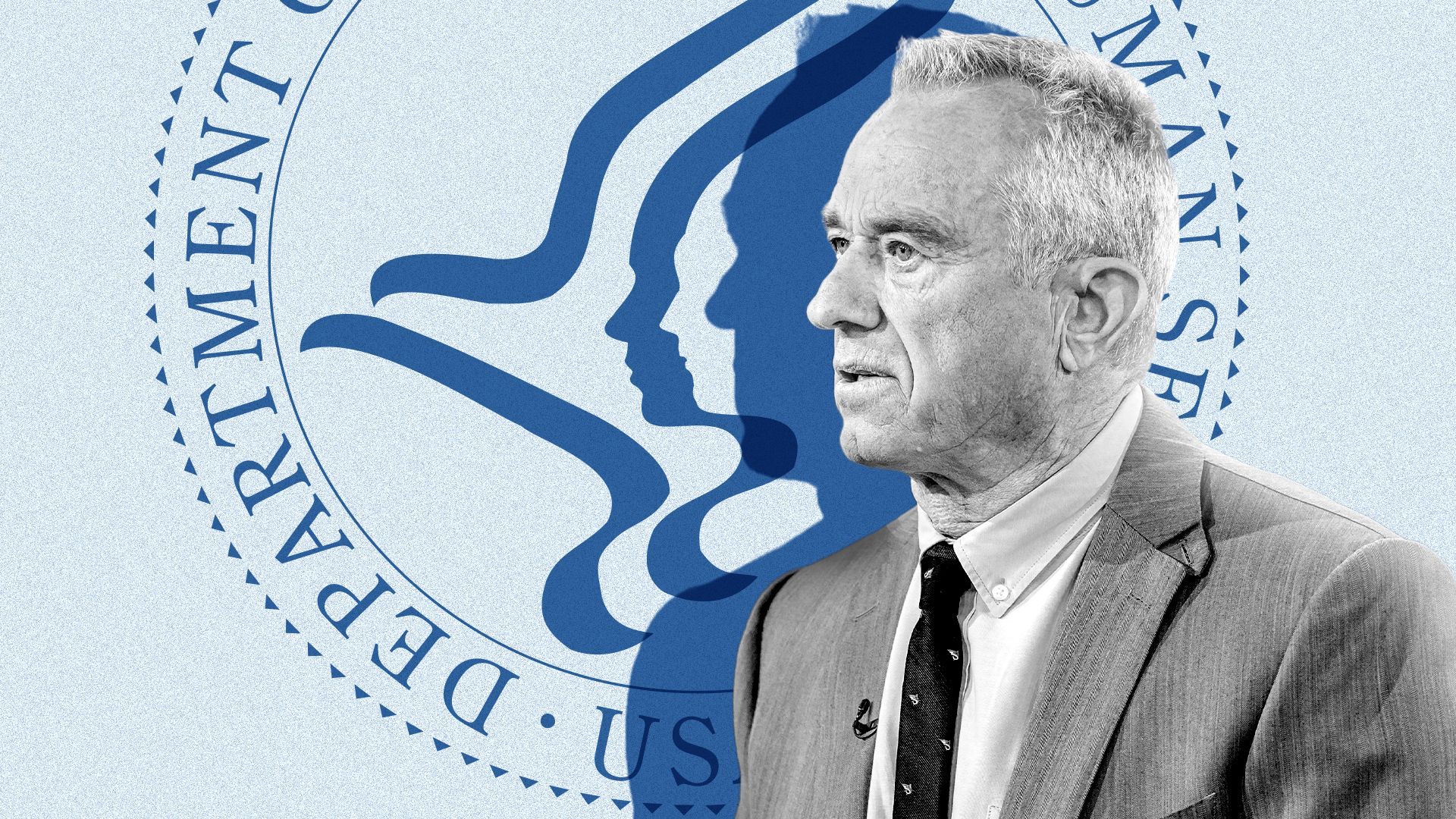|
||
| Axios Vitals | ||
| By Maya Goldman and Tina Reed · Aug 28, 2025 | ||
|
It's Thursday ... and the CDC's leadership is in chaos after a whirlwind day of news that also saw Robert F. Kennedy Jr. raise major barriers to most people who want to get vaccinated against COVID.
|
||
| 1 big thing: Monarez out as CDC director | ||
| By Tina Reed | ||

|
||
|
Monarez during her Senate confirmation hearing. Photo: Matt McClain/Washington Post via Getty Images |
||
|
The CDC was engulfed in turmoil late yesterday as director Susan Monarez was fired, just weeks after her confirmation. Why it matters: Monarez's and other sudden high-level departures gutted the top ranks of the agency that's responsible for protecting the nation's public health. The intrigue: After HHS announced on X that Monarez was "no longer director" of the CDC, attorneys Mark Zaid and Abbe Lowell posted on X last night that Monarez had "neither resigned nor received notification from the White House that she has been fired." The White House announcement came less than two hours later.
Driving the news: The CDC's chief medical officer, Debra Houry, resigned her position, according to internal emails viewed by Axios.
What they're saying: "The intentional eroding of trust in low-risk vaccines favoring natural infection and unproven remedies will bring us to a pre-vaccine era where only the strong will survive and many if not all will suffer," Daskalakis wrote in a blistering resignation letter he posted on X.
Monarez clashed with Kennedy over COVID vaccine policy changes and tried to get Senate health committee chair Bill Cassidy (R-La.) to intervene after Kennedy urged her to resign, the Washington Post reported.
Maya Goldman and Emily Peck contributed. |
||
|
|
||
| 2. Kennedy shakes up COVID vaccine policy | ||
| By Adriel Bettelheim | ||

|
||
|
Photo illustration: Aïda Amer/Axios. Photo: Roy Rochlin/Getty Images |
||
|
Kennedy's new COVID vaccine policy continues a steady drip of moves that are incrementally raising barriers to accessing shots.
Why it matters: While the new policy was in line with drug companies' expectations, there could be more obstacles ahead when the CDC and Kennedy's handpicked vaccine advisory board weigh in on the suitability of the shots in the coming weeks. Driving the news: Kennedy said on X that the FDA rescinded emergency use authorizations for Pfizer and Moderna mRNA shots and greenlit boosters for high-risk patients.
Between the lines: The moves are consistent with Kennedy's past vows to kill pandemic-era policies but still allow people to access vaccines.
|
||
|
|
||
| 3. Medical schools pressed on nutrition curricula | ||
| By Tina Reed | ||

|
||
|
Illustration: Shoshana Gordon/Axios |
||
|
Kennedy yesterday gave medical schools less than two weeks to "immediately" add more nutrition education to their curricula. Why it matters: Kennedy previously threatened the schools with loss of funding if they don't beef up their nutrition education as part of his "Make America Healthy Again" agenda, which also includes a planned revamp of federal dietary guidelines. Driving the news: Kennedy and Education Secretary Linda McMahon called for medical schools to "immediately implement comprehensive nutrition education and training."
What he's saying: "We train physicians to wield the latest surgical tools, but not to guide patients on how to stay out of the operating room in the first place," Kennedy wrote in an op-ed yesterday in the Wall Street Journal.
Between the lines: While many medical schools say they already incorporate nutrition education, it can vary widely in its breadth and depth.
|
||
|
|
||
|
A MESSAGE FROM AXIOS |
||
| Be in the room where media's future is decided | ||

|
||
|
VIP tickets to Media Trends Live grant you front-row access to the biggest media trends, leaders, and decisions shaping 2025 and beyond. You'll also get exclusive access to the Axios Media Trends Executive membership which includes:
|
||
| 4. Surprise billing system racks up big bills | ||

|
||
|
Illustration: Maura Losch/Axios |
||
|
The process for settling disputes under the federal surprise billing ban has generated at least $5 billion in costs since its inception in 2022 that will likely be reflected in higher overall health expenses and premiums, researchers wrote in the latest edition of Health Affairs. The big picture: Multiple legal challenges to arbitration rules have kept providers and insurers at odds almost since the No Surprises Act took effect and swamped a dispute resolution system the law established. What they found: From mid-2022 to May 2025, more than 3.3 million disputes were filed. That's in stark contrast to original estimates that the process would handle about 17,000 disputes annually, and that most would be resolved amicably through a mandatory 30-day negotiation period.
The researchers estimated the dispute resolution system is adding about $2 billion to $2.5 billion in costs per year. That figure may not capture all of the administrative expenses. |
||
|
|
||
| 5. Catch up quick | ||

